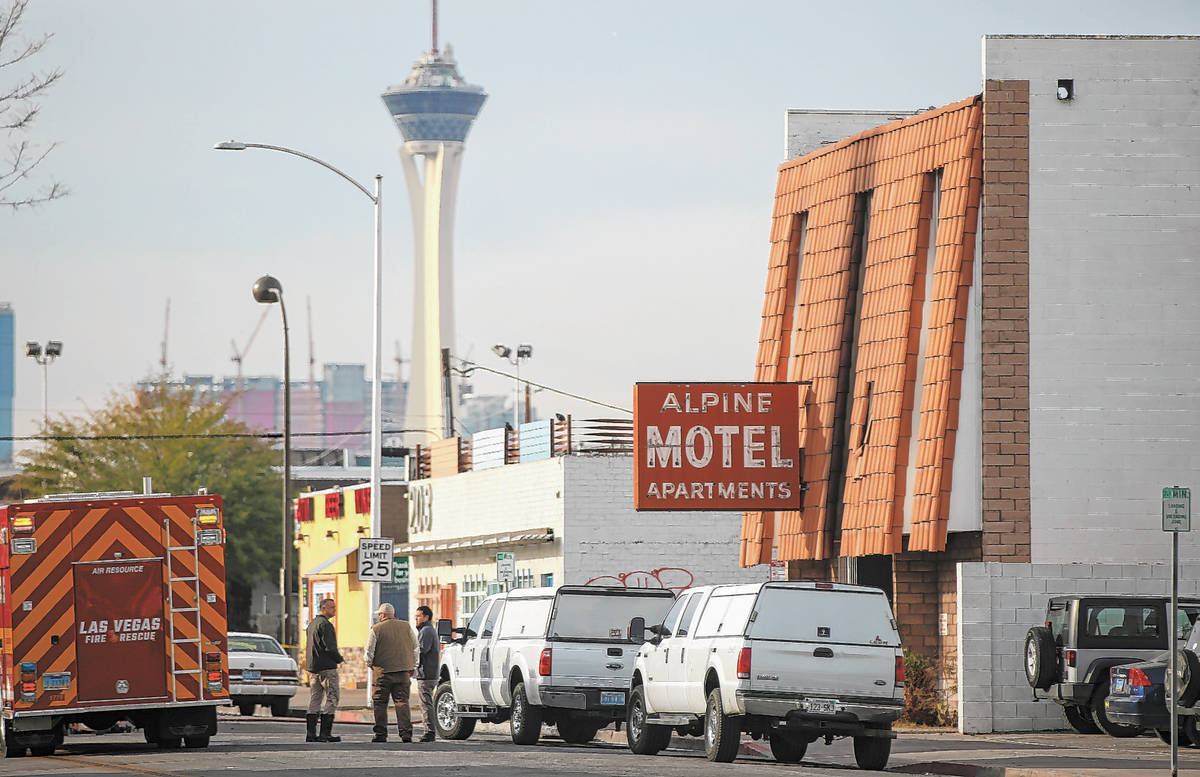EDITORIAL: City moves forward with reforms after Alpine fire
More than nine months after the deadliest residential fire in city history, the Las Vegas City Council on Wednesday approved a series of reforms intended to minimize the chances of a recurrence. Now the question becomes: Will regulators follow through?
Six people were killed and 13 injured last December when a blaze raged through the Alpine Motel Apartments downtown. The property had a history of failing fire inspections, yet it hadn’t undergone a review for 32 months prior to the deadly conflagration. Following the tragedy, Las Vegas fire inspectors found 42 violations at the property, including a fire exit that had been bolted shut from the outside.
Under the measures passed this week, the city will ramp up inspections to one or two times annually of problem rental properties that are identified through a series of metrics — such as police activity, code enforcement issues and fire prevention data. Landlords who don’t make necessary fixes within a specific time frame will face increased fines. The city could even make the repairs itself and bill the property owner.
The vote also expands the inspection program beyond traditional apartment buildings to also include extended-stay hotels and fourplexes.
“To me, this was beyond significant and needed to be addressed,” Mayor Carolyn Goodman said.
Perhaps the most significant change will be a heavier reliance on analytics to identify properties at higher risk. Such an approach has proven effective at reducing residential fires in other jurisdictions. More frequent inspections of such buildings are also important — but it’s worth noting that city fire officials were lax in not paying closer attention to the Alpine, given its checkered history. Identifying problems is one thing; ensuring they’re taken care of is another.
The ultimate goal should be to pinpoint vulnerable apartment buildings and to work with landlords to quickly address high-priority violations while helping them craft a blueprint to take care of less pressing issues. More aggressive code enforcement must not come at the expense of due process or the rights of building owners and tenants. But better prioritizing prevention efforts is a must.
“It’s unfortunate,” City Councilman Cedric Crear said, “that bad things have to happen sometimes for good things to happen.”
Indeed. But at least the families of those lost in the Alpine fire can take solace in knowing that the city is moving in the right direction.

















